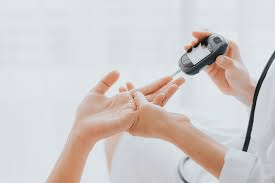Many adults live with chronic conditions such as diabetes and high blood pressure. While these conditions are typically associated with concerns about heart health, circulation, and energy, they also impact another aspect of daily life that often goes overlooked: hearing. Understanding how these conditions contribute to hearing loss can help individuals manage risks, protect their quality of life, and explore support through hearing aids when needed.
The Delicate Structure of the Inner Ear
The inner ear contains a network of microscopic hair cells that translate sound waves into electrical signals. These signals travel through the auditory nerve to the brain, where they are processed as sound. Because the ear depends on a steady flow of oxygen-rich blood to keep these cells healthy, anything that interrupts circulation or damages blood vessels can impair hearing. Both diabetes and high blood pressure are known to alter circulation in ways that increase the risk of inner ear damage.
How Diabetes Affects Hearing Health
Diabetes alters how the body regulates blood sugar. Persistently high blood glucose can damage small blood vessels throughout the body, including those that feed the delicate structures of the cochlea. Over time, this damage reduces the blood supply to sensory hair cells, which cannot regenerate once they are lost. Research shows that people with diabetes are twice as likely to have hearing loss.
In addition, diabetes can damage the auditory nerve. Nerve fibers require stable metabolic conditions to transmit signals efficiently. Diabetes leads to long-term blood sugar fluctuations, which stress nerve cells and reduce their capacity to transmit clear sound signals. This explains why some individuals with diabetes notice not only a reduction in volume but also difficulty distinguishing speech in noisy environments.
The Role of High Blood Pressure in Hearing Decline
High blood pressure places extra force on artery walls, leading to gradual hardening and narrowing. These changes restrict circulation, particularly in the tiny vessels that feed the inner ear. Because the cochlea is highly sensitive to even slight reductions in blood flow, prolonged high blood pressure can create cumulative damage.
Studies show that people with unmanaged high blood pressure are more likely to develop hearing challenges as they age. Some research also suggests a connection between sudden spikes in blood pressure and temporary hearing problems. Although these episodes may improve once pressure stabilizes, the long-term pattern of strain on the cardiovascular system raises the likelihood of permanent damage.
When Diabetes and High Blood Pressure Occur Together
Diabetes and high blood pressure often appear side by side, creating a compounded effect on circulation. When both conditions are present, the risk of hearing loss rises even higher. The combined stress on small blood vessels can accelerate inner ear damage and reduce the body’s resilience to age-related hearing changes. For many adults, this combination explains why hearing difficulties surface earlier than expected.
read more : 7 Best Virtual Team Celebration Ideas for Work
Broader Health Implications
The link between chronic conditions and hearing health underscores the body’s interconnectedness. Untreated hearing loss has been associated with social withdrawal, reduced physical activity, and even cognitive decline. When combined with the management demands of diabetes and high blood pressure, the effects can add to feelings of isolation. Addressing hearing concerns promptly can improve not only communication but also overall well-being.
Steps to Protect Hearing Health
Lifestyle choices make a measurable difference in reducing risks. Managing blood sugar within target ranges helps slow the progression of vascular damage. Following a balanced diet, staying physically active, and keeping routine medical appointments contribute to steady control of both blood sugar and blood pressure.
For those with high blood pressure, limiting sodium, moderating alcohol intake, and following prescribed treatment plans can preserve vascular function. Combining these efforts with regular hearing evaluations provides an additional safeguard. Detecting subtle changes early gives individuals the opportunity to adopt protective strategies before hearing loss becomes more pronounced.
The Role of Hearing Aids in Quality of Life
When hearing loss does occur, hearing aids provide a way to remain socially connected and engaged. Modern devices are designed to amplify speech clearly, reduce background noise, and fit comfortably into daily routines. For people managing diabetes and high blood pressure, improved hearing can ease communication with healthcare providers, support adherence to medical plans, and reduce the stress that comes with missing details in conversation.
Clearwater adults living with diabetes and high blood pressure face unique health challenges, but understanding their relationship with hearing loss brings an opportunity for proactive care. By maintaining consistent medical routines, adopting healthy habits, and addressing auditory changes with timely evaluations, individuals can protect both their long-term health and their daily connections. For those who find that hearing aids can restore clarity and confidence, Countryside Hearing Aids offers guidance and solutions tailored to individual needs.
